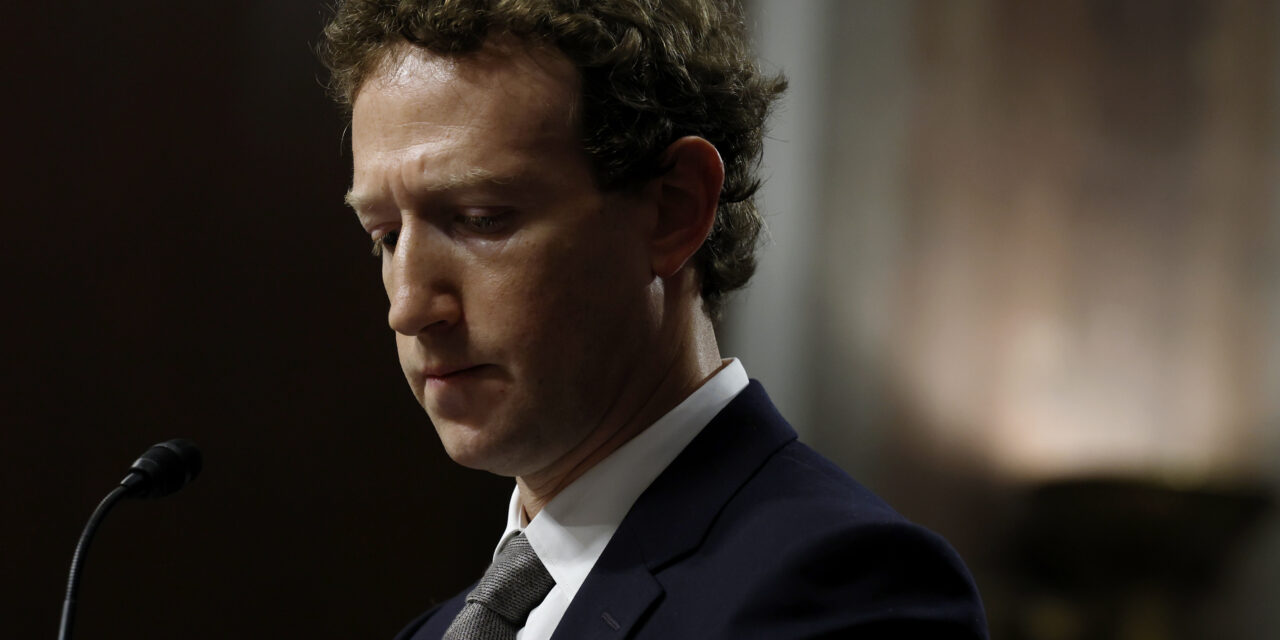
Meta founder and CEO Mark Zuckerberg blames the government for pressuring his social media platform to censor and suppress unfavorable content in 2020 and 2021.
“In 2021, senior officials from the Biden Administration, including the White House, repeatedly pressured our teams for months to censor certain COVID-19 content, including humor and satire, and expressed a lot of frustration with our teams when we didn’t agree,” the social media czar wrote in a recent letter to House Judiciary Committee Chairman Jim Jordan (Ohio), continuing:
Ultimately, it was our decision to take content down, and we own our decisions … [but] I believe the government pressure was wrong, and I regret that we were not more outspoken about it.
Zuckerberg further addresses Meta’s suppression of the New York Post’s infamous story on Hunter Biden’s abandoned laptop, claiming the FBI had warned them it could be “Russian disinformation.”
We sent the story to fact-checkers for review and temporarily demoted it while waiting for a reply. It’s since been made clear that the reporting was not Russian disinformation, and in retrospect, we shouldn’t have demoted the story.
The embattled Zuckerberg’s letter finally acknowledges what many have known since 2022 — the federal government forced private companies to control and suppress information pertaining to health and safety, government misconduct, and the character of elected officials.
Now that the cat is officially out of the bag, here are some key takeaways:
Social media platforms are not neutral.
Social media companies like to portray themselves as unbiased public services, like telephone lines or wireless internet. But they are biased — toward turning a profit.
Businesses like Meta make money by keeping users’ attention for as long as possible. You will never get objective or organic information from these platforms because personalized algorithms feed each user a steady diet of content they love — or love to hate.
Social media companies’ unrivaled ability to control what viewers see is what attracts the federal government to them. And, like all other companies, Meta and its contemporaries aren’t impervious to government pressure or collusion.
Bottom line — don’t rely on social media for truth. Do your own research and force yourself to understand “the other side” of any issue.
Government administrations are not neutral.
People in positions of power want to remain in power. America’s government relies on peaceful transitions between presidents, but that doesn’t mean administrations relish relinquishing control to a rival.
Zuckerberg’s letter shows the FBI going to great lengths to discredit stories about presidential corruption ahead of the 2020 — before any had surfaced. This shows that U.S. government administrations will mess with the flow of information to protect their interests.
This shouldn’t be a surprising revelation.
Power is a beguiling incentive to commit all kinds of evils in and outside of government. It should, however, remind citizens to stay vigilant. Follow the law and respect those in power, as Roman 13:1 commands, but don’t take anyone’s word at face value. Use prayerful discernment to determine the truth:
Do not be conformed to this world, but be transformed by the renewal of your mind, that by testing you may discern what is the will of God, what is good and acceptable and perfect (Romans 12: 2, ESV).
Zuckerberg’s letter represents an encouraging triumph of truth over years of lies and denial. Citizens and believers should celebrate by recommitting to finding and holding fast to the truth. Don’t take what social media and the government say as gospel — ground yourself in Scripture, pray for guidance and, as always, do your own research.


